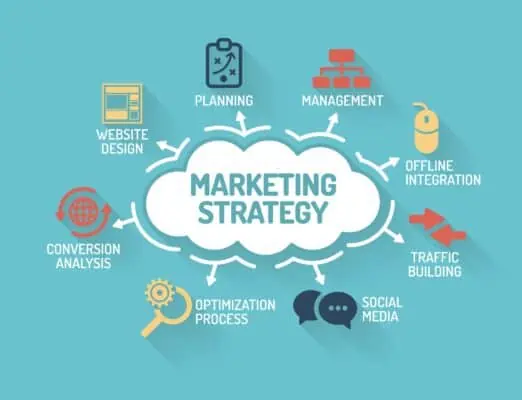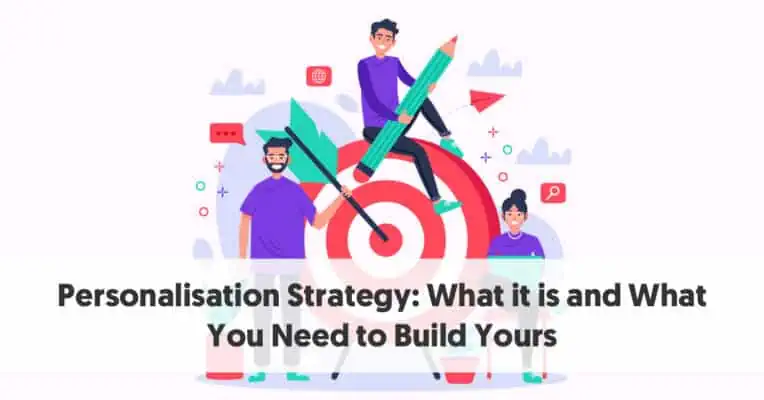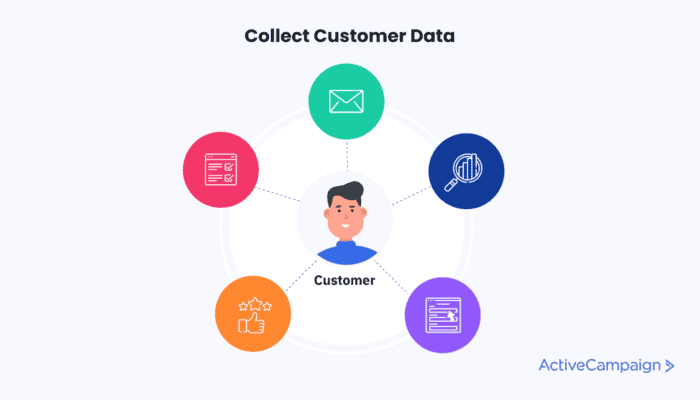What Is A Personalization Strategy?Explained Personalize Marketing

Creating personalized management strategy is an approach used by marketers to tailor their ads efforts to individual customers, persona or target segments. It involves collecting and analyzing customer data and using it to create customized experiences or offers that are more relevant to each customer to landing page and target audience in real-time. This can include personalized product recommendations, tailored email campaigns, demographic or customized website content. The goal of a personalization is to enhance customer engagement and increase conversion rates by delivering targeted and personalized marketing messages. By providing customers with personalized analytics, personalized messages, marketers can create a stronger connection and build customer loyalty. Personalized marketing can also help businesses stand out in a crowded marketplace and differentiate themselves from competitors about product or service. Overall, a successful marketing strategy requires a deep understanding of customer preferences, behavior, and needs, as well as the ability to effectively use data and technology to deliver personalized experiences strategy. By employing personalization message, marketers can maximize the impact of their marketing efforts and drive business growth.
1. Introduce about type Personalized Marketing
Imagine visiting an online store, and it instantly displays products that perfectly align with your interests, knowledge and needs. Or receiving emails tailored specifically to your preferences, codification grabbing your attention immediately. Welcome to the world of personalization! In this article, we will delve into the concept of a personalization and how it revolutionizes marketing.
2. What is Personalization Strategy?

Personalization refers to the process of tailoring content, product recommendations, and marketing efforts to individual customers based on their behaviors, preferences, and demographics. It goes beyond addressing the masses; instead, it focuses on building meaningful, one-on-one connections with customers. In the era of information overload, personalization sets businesses apart by creating delightful and relevant experiences for their audience.
3. Benefits of Type of Personalization Strategy
Personalization offers a myriad of benefits, the most prominent being an improved user experience. When customers feel understood and valued, they are more likely to engage with a brand and become loyal advocates. By catering to individual needs, personalization drives customer satisfaction and retention, leading to higher rates and increased revenue.
4. Understanding Customer Behavior and Roadmap
At the core of any strategy lies customer data and content personalization. Understanding customer behavior involves collecting, definition and analyzing data related to their browsing habits, purchase history, and interactions with your brand when using personalization. By gaining insights into what motivates, effective personalization and interests customers, businesses can create targeted marketing strategies that resonate with their audience on a personal level.
5. Tailoring Content and Recommendations about Marketing Personalization Strategy
A personalization campaign involves creating content and product recommendations that align with each customer’s preferences. This can be achieved by leveraging customer data to offer relevant product suggestions, content recommendations with personalization tactics and personalized offers. By presenting customers with what they want via visit your website, businesses can significantly increase engagement and conversions.
6. Implementing Personalization and Customization in Marketing
To implement personalization engines effectively, businesses can utilize various strategies. Dynamic content on websites, personalized email marketing campaigns, and customized product recommendations are some common methods with digital marketing. Tailoring marketing messages for specific segments of the audience can also yield impressive results, as it shows that the brand understands the diverse needs of its customers.
7. Leveraging User and Marketer Data
The key to successful personalization lies in data collection and utilization. Gathering user data ethically and responsibly is vital. This data can come from various sources, such as website interactions, social media activities, purchase history, and feedback. Leveraging this data enables businesses to craft personalized that leave a lasting impression on customers.
8. Website Personalization Example in Email Marketing

Email remains a powerful tool for engaging customers. Personalization solution in this context involves customizing email content based on user preferences and behavior. By addressing customers by their names, personalization helps recommending products related to their previous purchases, and segmenting email lists, businesses can achieve higher open and click-through rates.
9. Personalized Strategy Experience through Website
A personalized website experience is critical for keeping users engaged. This can be achieved through dynamic content that changes based on user behavior, personalized recommendations, one-to-one marketing and personalized calls-to-action. By adapting the website experience to suit individual preferences, businesses can increase user satisfaction and encourage longer browsing sessions.
10. The Role and Segmentation of AI and Machine Learning
The scale of web personalization in marketing team would be challenging to achieve manually. This is where artificial intelligence (AI) and machine learning come into play. These technologies enable businesses to automate the process of analyzing client data, predicting preferences, and delivering personalized content at scale. AI-driven personalization empowers marketers to make data-driven decisions and enhance the customer experience with website personalization strategy.
11. Challenges and Risks with Customer Journey
While importance of personalization software offers tremendous benefits, it also comes with challenges and risks. One of the main concerns is customer privacy. Collecting and utilizing vast amounts of customer data raises privacy issues, and businesses must be transparent about data usage to build trust with contextual personalization. Additionally, there is a fine line between personalized and being intrusive, which can lead to customer alienation if not handled with care.
12. Personalization Success Stories about Marketing Campaign
Numerous brands have achieved remarkable success through basic personalization. Amazon, with its personalized campaigns, has significantly increased sales and customer retention. Netflix’s personalized content suggestions keep users hooked, leading to a loyal subscriber base. These success stories highlight the potential of personalization when executed effectively.
13. Measuring Personalization Success Conversion
To gauge the effectiveness of a expect personalization platform, businesses must track relevant metrics. Personalization is the key performance indicators (KPIs) such as conversion rates, click-through rates, customer lifetime value, and customer satisfaction can provide valuable insights into the impact of segmentation and personalization efforts. Continuous analysis and improvement are essential to refining the strategy for optimal results.
14. Future of Smart Personalization Campaign
As technology advances, so does the potential for omnichannel personalization benefits. The future holds exciting possibilities, such as hyper-personalization, where AI can predict customer needs even before they express them. Virtual reality (VR) and augmented reality (AR) will enable immersive personalized experiences, revolutionizing the way customers interact with brands.
15. Conclusion Marketing Technology and Content Strategy
In conclusion, a well-crafted personalization can work wonders for businesses in today’s competitive market. By understanding customer behavior, relevant content and recommendations, and leveraging technology, brands can deliver personalized experiences that foster customer loyalty and drive growth also prove your personalization. The future of personalization is important holds even more promise, making it an essential aspect of any modern marketing approach. Beside, you need to looking for a reliable agent in China, help you sourcing the good products and sucessful business.
16. FAQs for E-commerce Personalization and Rise of Personalization Strategy
-
Is personalization suitable for small businesses? Absolutely! Personalization is not limited to large corporations. Small businesses can benefit from understanding their customers wants and offering experiences to build lasting relationships.
-
Does personalization lead to increased sales? Yes, personalization come to increase sales and conversions by creating meaningful connections and addressing individual needs.
-
How can businesses ensure data privacy while personalizing? Businesses must adopt transparent data policies, obtain explicit consent, and use secure data storage practices to protect customer privacy.
-
What are some cost-effective personalization? Starting with email personalization and segmenting customer lists based on behavior can be cost-effective ways to begin implementing personalization.
-
Can personalization go wrong? Yes, personalization can help backfire if it becomes too intrusive or if data is mishandled, leading to customer distrust and alienation.
Remember, successful comes to personalization is not just about technology; it’s about understanding and connecting with customers on a human level. Embrace personalization responsibly, and you’ll be well on your way to creating memorable experiences for your audience.
Private Agent for Dropshipping Success